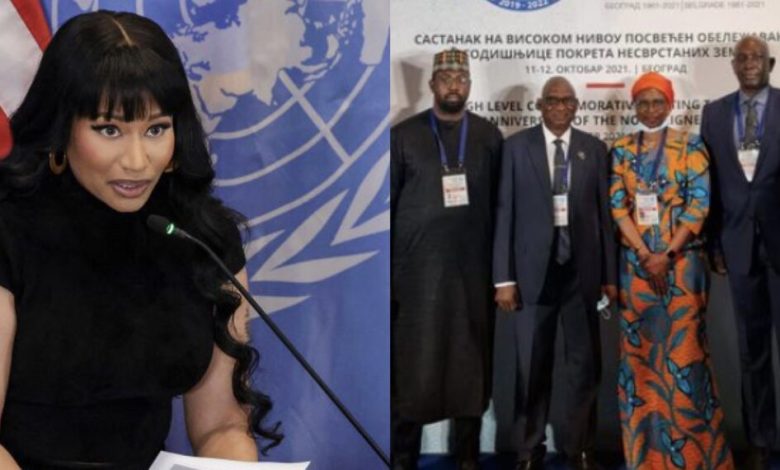
Nigeria has raised strong concerns after discovering it was left out of a meeting held at the United Nations in New York on alleged attacks against Christians in the country.
The discussion, which involved U.S. officials and “U.S. rapper Nicki Minaj,” focused on claims of targeted killings of Nigerians belonging to a particular faith group.
The Chargé d’Affaires at Nigeria’s Permanent Mission to the UN, Mr. Syndoph Endoni, said the decision to shut out Nigeria from a conversation that directly concerns the nation amounted to “shaving our head in our absence”.
He expressed worry that the dialogue went ahead without allowing Nigeria the opportunity to give its own position.
According to him, the event was organised in collaboration with the United States Mission to the UN and was connected to ongoing accusations by Washington alleging Christian persecution in Nigeria.
These allegations have intensified since U.S. President Donald Trump placed Nigeria on the list of “Country of Particular Concern” over supposed attacks on Christians.
Endoni dismissed the accusations as misleading and insisted that Nigeria has consistently rejected claims of a Christian genocide.
He stressed that any conversation that touches on such sensitive issues must include Nigeria, noting that, “you should not make important decisions or take action on something that involves a country without their presence or consent.”
He stated that shutting Nigeria out meant denying the country the right to defend itself. Endoni also questioned why only a few countries were invited, while the nation at the centre of the allegations was excluded.
“We asked the U.S. authorities if it was okay to continue to shave someone’s hair in his absence,” he said.
He added that the government is actively addressing the security challenges caused by criminal groups and is not ignoring the dangers they pose.
The Nigerian envoy further noted that both nations can make more progress by working closely instead of allowing actions that heighten tension or cause misunderstanding.
He urged the U.S. to avoid engagements that appear one-sided, especially on matters that stir emotions among Nigerians.
He also confirmed that a U.S. official had visited the Nigeria House in New York to brief him about the planned Minaj event.
During the briefing, Nigeria was told that only three UN member states and a few individuals, including a Nigerian pastor, were invited.
However, no representative of the Nigerian government was included, with the U.S. describing it as a private engagement.
The move has raised concerns within Nigeria’s Mission, especially after learning that the exclusion was allegedly based on fears that Nigerian officials might intimidate or threaten the invited participants.
Endoni said such assumptions were troubling and capable of “causing apprehensions in the country”.
Despite the controversy, he assured that Nigeria will continue to engage the U.S. on issues related to extremist killings and work jointly to protect lives and property.
